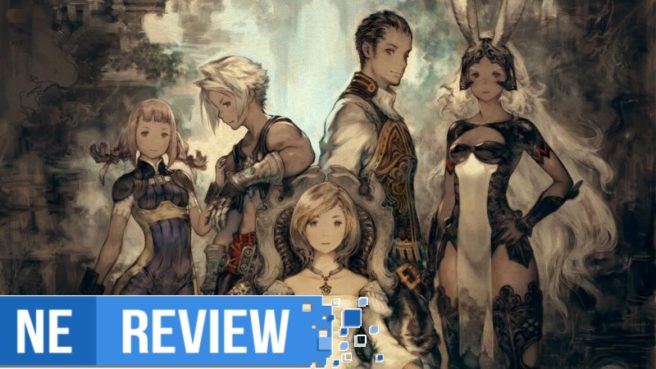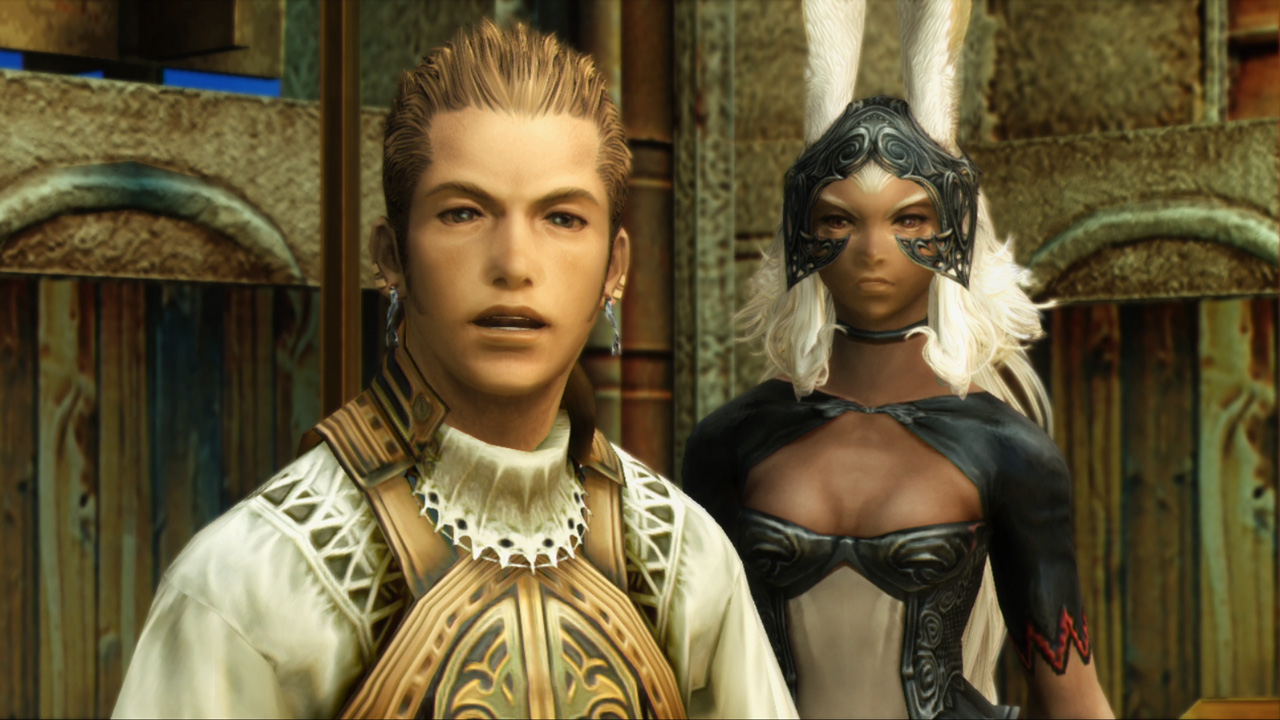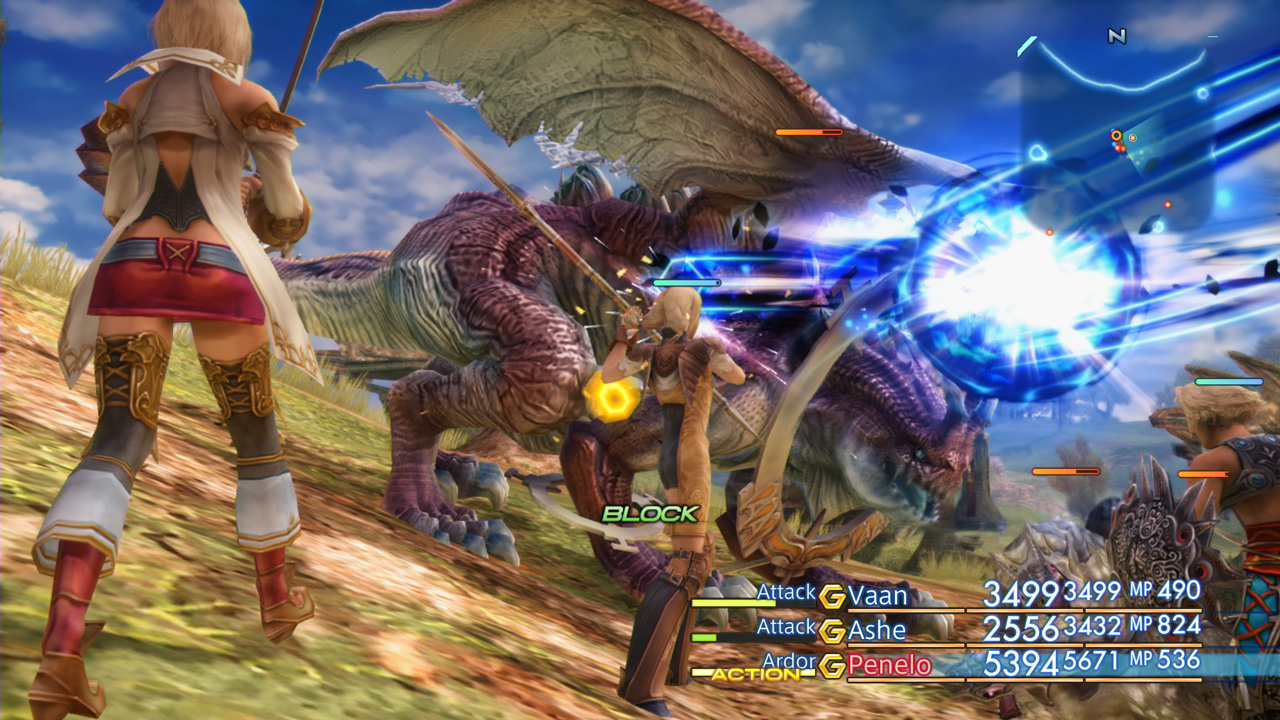[Review] Final Fantasy XII: The Zodiac Age
System: Switch
Release date: April 30, 2019
Developer: Square Enix / Virtuos
Publisher: Square Enix
If you’ve ever watched the Star Wars prequel trilogy and thought “Man, this would be so much better if it were a Japanese role playing game,” then Final Fantasy XII is the game for you. With its fusion of medieval and sci-fi ideas in its setting and its heavy political overtones, it easily draws plenty of comparisons to George Lucas’s iconic space operas – it even comes complete with an evil Senate-led Empire and a plucky young orphan destined to take it down. Also like the prequel trilogy, Final Fantasy XII has been a point of contention for its series’ fans ever since its first release on the PS2 in 2006. Its unconventional real-time combat was a far cry from the classic turn-based battles that had defined the franchise up to that point, and the entire core structure of its politically charged storytelling and combat management felt like a dramatic change from traditional Final Fantasy experiences.
However, here’s one point where Final Fantasy XII differs from Star Wars: it has only gotten better with every re-release, as is perfectly exemplified by the release of its Zodiac Age HD Remaster on Switch. With beautifully remastered presentation and brand-new gameplay enhancements that make the game simultaneously more strategic and player-friendly than ever, this is the possibly best that Final Fantasy XII has ever been.
Final Fantasy XII wastes no time in introducing its world of Ivalice. As the game opens, this land of diverse kingdoms and races is embroiled in a conflict with the ever-expanding Archadian Empire, with the realm of Dalmasca being the latest victim to Archadia’s endless conquest. The game focuses on Vaan, an orphan living on the streets of Dalmasca whose brother was killed in the war with Archadia. He attempts to spite the Empire with a petty robbery in its Imperial Palace, but as he does so, he ends up being drawn into a much larger conflict, eventually being roped into a movement to overthrow the Empire itself. The story may sound typical at its surface (and draw more than a few comparisons to iconic sci-fi and fantasy films), but there is an impressive amount of depth to uncover here. Its story is intricate and thoughtful, taking advantage of its deeply realized world to present an incredibly human story. Regardless of the many strange races, monsters, and magicks that proliferate throughout the narrative, its story of loyalty and ambition is one that feels remarkably authentic, as if it was pulled straight out of history. No matter how outlandish the characters may appear, every character you come across in your adventure feels authentic and every scenario feels believable – an impressive feat for a game that sometimes features rabbit women flying in magic-fueled aircrafts. That said, the story can be hard to keep track of—the first few hours can be particularly difficult as the game throws Ivalice’s complex geopolitical conflicts at you with little explanation to help you along. Give it the time it needs, however, and it’s easy to become invested in the detailed world of Ivalice.
One of the ways that Final Fantasy XII immediately diverged from its predecessors was in just how huge it all is. The main hub city of Rabanastre is massive in its own right, and even it is dwarfed by the gargantuan field areas. In between scripted story beats, you’re able to explore this world at your leisure, hunting enemies and discovering its many secrets. In this way, Final Fantasy XII becomes almost the exact opposite of its single-player predecessor, Final Fantasy X, which was infamous for its linearity. Sometimes this expansiveness feels excessive – it means that whether you want to travel across a field, venture through a dungeon, or cross town to purchase an item, it can take ages just to reach your destination. That’s where one of this remaster’s big additions comes in – with a click of the L trigger, you can speed up the entire game to double or even quadruple speed. The double speed is great for traversing the world, and the quadruple speed is fantastic for accelerating the inevitable grind sessions, although I wouldn’t recommend the max movement speed for environment exploration – it’s nearly impossible to keep control of your character at that velocity.
Perhaps the most divisive aspect of Final Fantasy XII upon its initial release was its combat system, which appeared drastically different from anything that had come before it. Gone are the turn-based battles that had defined the classic titles, and instead we are presented with an MMO-like system that blends aspects of the traditional turn-based games with new real-time elements. One of the most immediate changes is the complete lack of random encounters. Every single enemy is visible on the overworld, and they’re completely possible to avoid. When you engage in combat with one of these foes, you won’t have to select specific actions for your party members – instead, everyone acts automatically based on pre-programmed commands you can equip for them using the Gambit system. Gambits are effectively basic if/then statements: use a potion if an ally is below 50% HP, use a fire spell if an enemy is weak to fire, begin attacking if an enemy is near, and so on. It was a shockingly unconventional battle system for a single-player RPG at the time, but as the years have passed and games like the Xenoblade Chronicles series have made real-time combat more familiar to RPG fans, Final Fantasy XII’s system shines for its elegance and tactical potential.


